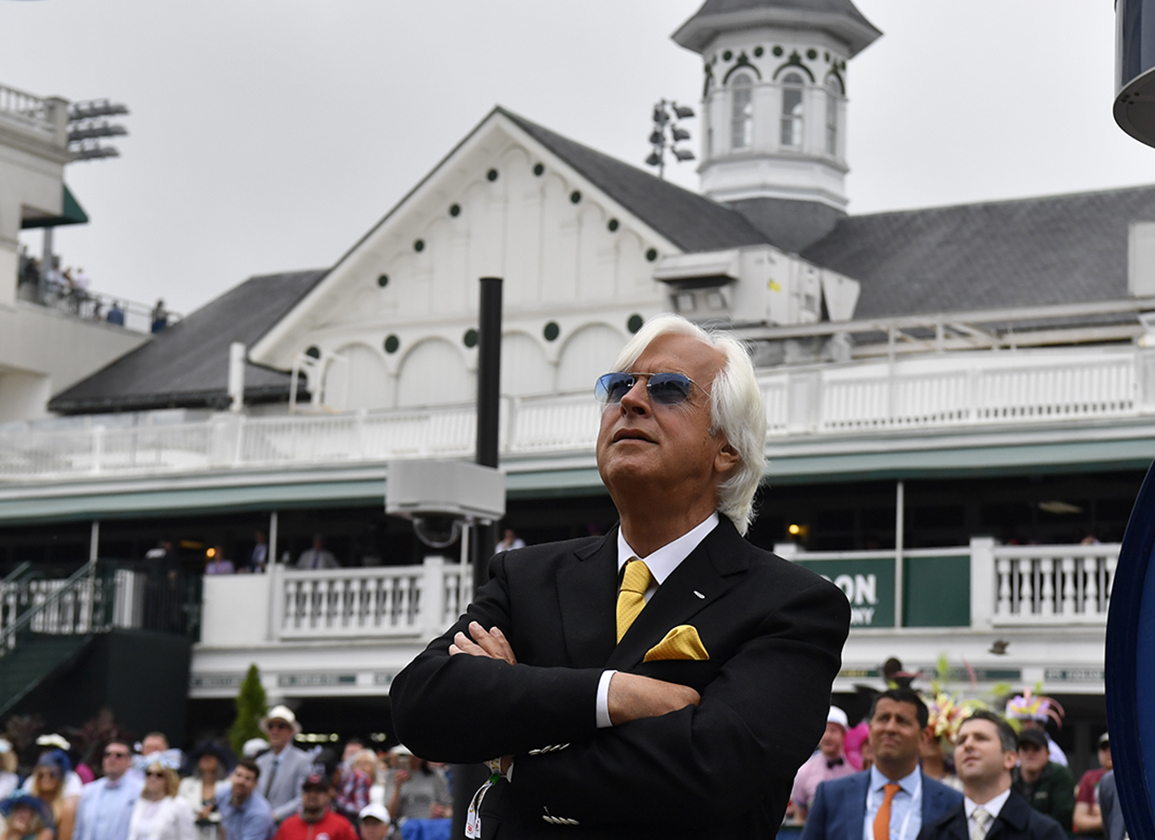Trainer Bob Baffert has filed a lawsuit in U.S. District Court for the Western District of Kentucky against Churchill Downs Inc. (CDI), CDI CEO Bill Carstanjen and CDI Board Chair Alex Rankin. Baffert is seeking a preliminary or permanent injunction that will enjoin Churchill from barring him. At present, Baffert cannot compete in the 2022 or 2023 runnings of the GI Kentucky Derby or any other races at Churchill or Churchill-owned tracks.
He is also fighting a separate action from the Kentucky Horse Racing Commission, which suspended him for 90 days after Medina Spirit (Protonico) tested positive for betamethasone in last year's Derby.
“The notion that Churchill Downs, which is not even tasked with regulating horse racing in Kentucky, could unilaterally ban a trainer by an edict coupled in a press release without having the facts or any semblance of due process should arouse outrage in any fair-minded person,” said Baffert's attorney Clark Brewster.
Shortly after the lawsuit was filed, Churchill issued a scathing statement, declaring that its fight against Baffert was about protecting the integrity of racing.
“The lawsuit filed by Bob Baffert is disappointing, but certainly not surprising,” the statement read. “His claims are meritless and consistent with his pattern of failed drug tests, denials, excuses and attempts to blame others and identify loopholes in order to avoid taking responsibility for his actions. These actions have harmed the reputations of the Kentucky Derby, Churchill Downs and the entire Thoroughbred racing industry. Churchill Downs will fight this baseless lawsuit and defend our company's rights. What's at stake here is the integrity of our races, the safety of horses and the trust of the millions of fans and bettors who join us every year on the first Saturday in May.”
The Baffert side did not mince words, either. The lawsuit charges that “CDI has, with malicious intent, caused significant damage to Baffert's ability to conduct his customary business on a national scale. From context, it is apparent that CDI's targeted sanctions have the singular aim of destroying Baffert's career.”
The crux of Baffert's case against Churchill is twofold, that the ban deprives him of his right to due process and that only the state racing commission is permitted to issue a ban against trainers.
“Despite the prevalence of actual reckless and dangerous conduct by others trainers and owners (which have sometimes culminated in Racing Commission suspensions), CDI has arbitrarily and capriciously singled out Baffert for this baseless sanction in violation of Baffert's procedural and substantive due process rights under the Fourteenth Amendment to the United States Constitution,” the suit reads.
A federal court ruled that the New York Racing Association violated Baffert's due process rights when issuing a suspension of its own against the trainer. That forced NYRA to hold a hearing into the Baffert matter, the results of which have yet to be determined. However, NYRA is a quasi-state organization and the courts generally treat such an entity differently than they do a privately held company like Churchill. In most cases, private tracks can ban individuals and do so without due process.
On the issue of whether or not Churchill can ban an individual, Baffert's legal team is arguing that such a suspension can only be handed down by a racing commission.
“Baffert expressly agreed to cooperate with the Racing Commission's regulatory process when he entered horses at Churchill Downs and to submit to any penalties imposed after a final order issued by that body. Baffert's culpability, if
any, will be determined in that forum,” the suit reads.
The lawsuit also seeks to force Churchill to award points for the Kentucky Oaks and Derby in the event a Baffert-horse places in a prep race. Churchill has declared that all Baffert-trainees are not eligible to earn any points in the preps, still another factor that might keep Baffert's horses out of those races.
But even if Baffert can win this round in court that does not mean he will be eligible to compete in the Derby. In order to do so, he will also have to find a way through the courts to get a stay of the Kentucky Horse Racing Commission's ban, which is set to begin Mar. 8.
Not a subscriber? Click here to sign up for the daily PDF or alerts.






